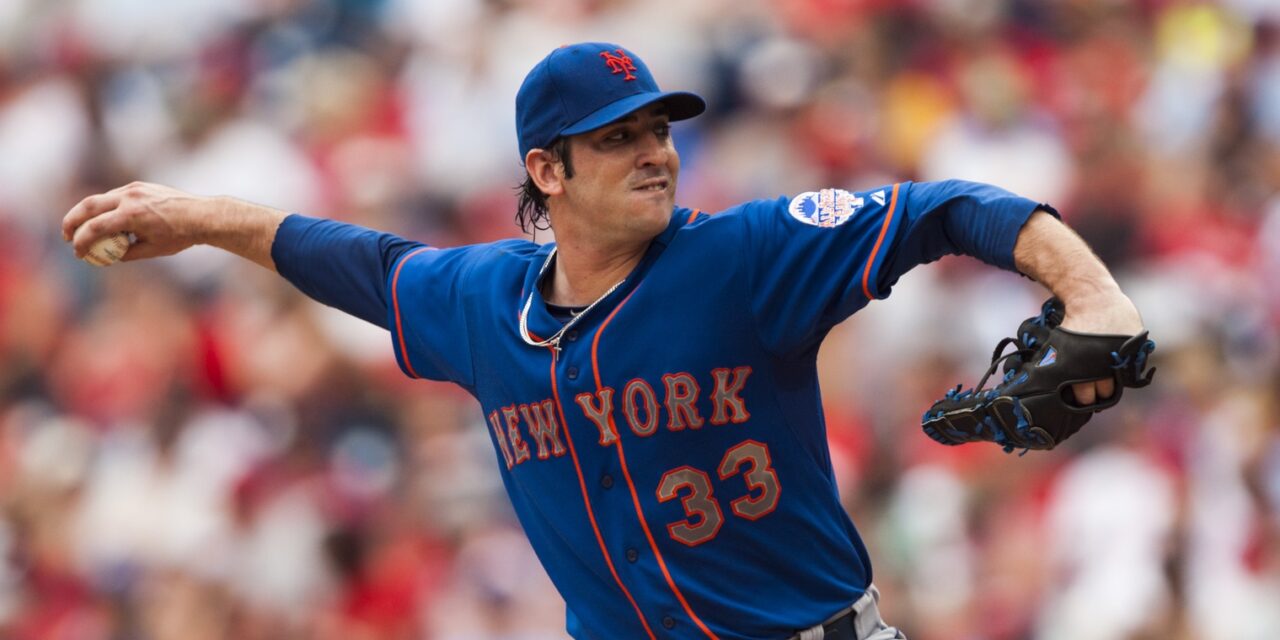There was some talk the past couple of days regarding Matt Harvey‘s pitch count, and an 210 innings limit that Sandy Alderson mentioned about a month ago. That innings cap would have Harvey’s season end approximately two weeks before the end of the regular season.
Joe D. also pointed out that it seems like Harvey’s effectiveness declines after he throws his 100th pitch.
We are seeing it more and more these days — as pitchers make higher and higher salaries as the years go by, they also throw less pitches.
Since the year 2000, the amount of games where the starting pitcher has thrown over 125 pitches has steadily declined. In 2007, there were only 14 games the entire season where a starting pitcher threw at least 125 pitches.
The game is suffering from pitch counts and so are the pitchers. It seems every year more and more teams try to protect their pitchers, yet every year we see star pitchers succumb to arm injuries.
Pitchers used to pitch until they couldn’t get anyone out anymore. In today’s game, you are more likely to see a starting pitcher that is pitching a shut out get pulled from the game with two outs left in the ninth inning, than complete that game.
Would Bob Gibson let his manager take him out of the game? How about Nolan Ryan? I don’t even think their managers would have the backbone to walk out of that dugout in the direction of the pitcher’s mound. You want to know why? They were warriors.
Pitchers these days have under-developed arms due to this idea that pitchers should only be allowed to throw 100 pitches in a game. By capping pitchers at 100 innings, what you are actually creating is a self-fulfilling prophecy. The reason why pitchers become ineffective after 100 pitches these days is all due to the belief that they will. Either that, or due to the fact that their arms are conditioned to only throw 100 pitches.
For hundreds of years, nobody ever thought that a human being could run a four-minute mile. Doctors theorized that the runner’s heart would explode under the stress. Roger Bannister finally debunked that myth when he ran a mile in under four minutes in 1954. His record lasted a mere 46 days before someone ran it even faster than he did when he set the record. Now it seems like a common occurrence.
Baseball is trending in the opposite direction. Pitchers used to throw well over 100 pitches regularly. Now there is this fear that something bad will happen to the pitcher who throws too many pitches. Nolan Ryan threw 142 pitches in a game when he was 42 years old. If that is not enough to prove that the pitcher’s arm won’t fall off than I don’t know what will. Juan Marichal is said to have thrown over 250 pitches in a game once — so why is the 100 pitch count number so important?
Johan Santana threw over 125 pitches during his no-hitter last season. He threw 134 pitches to be exact, and I was shocked to see his arm didn’t spontaneously fall off. I was waiting for it to happen…but it never did. Johan went over his 115 pitch count cap, and survived. Who would have thought it? Pitchers really can throw over 125 pitches and live to see another day. So again I ask, what is the point of a pitch count?
I have the confidence in major league managers and pitching coaches to recognize when a pitcher is getting tired, and make a decision to pull him from the game. Do they really need a pitch count to determine that? Why stick to this blanket 100 pitch count idea when every pitcher is different, and every decision should be made according to the situation that presents itself?
The problem is by creating the 100 pitch count myth, you now are forced to abide by it. Pitchers are no longer conditioned to pitch over 100 pitches in a game, and what you start to see is the pitchers becoming less effective after they throw the 100th pitch. The pitchers haven’t changed, the game has. Pitchers are just as capable physically to throw over 100 pitches in a game in 2013 as they were in 1913 — but the mentality has changed.
The game shouldn’t be impacted by a pitch count if the pitcher isn’t tired or still getting hitters out. Some managers obviously let their pitchers pitch past 100, but even those managers usually don’t let the pitchers go past 125. This is, in many baseball enthusiasts opinions, ruining the game.
History has proven that pitchers have gone well over 125 pitches in the past and lived to tell about it. There is no medical evidence that says a particular pitcher’s arm injury resulted as a result of pitching over 100 pitches, or throwing over 100 pitches on a consistent basis.
Please note, I am not a doctor, and have no medical evidence to support what I am about to say, but I have been around the game the majority of my life, and my experience with witnessing arm injuries is that they tend to occur earlier in games. This is most likely because the pitcher’s arm is still not loosened and not necessarily a result of throwing too many pitches.
I’m not really sure why teams have made this 100 pitch count so important. I’m sure it has something to do with protecting their multi-million dollar investments, but I haven’t seen many pitchers careers extended since adopting the pitch count, nor have I seen a decline in arm injuries.
So what’s the point?
There is something romantic about pitchers pitching complete games. This part of the game is steadily being phased out. Maybe the blue collar, American attitude of not having someone else finish your work is fading away. Maybe the baseball minds look at Henry Ford’s assembly line model said hey, let’s have pitchers with specialized roles in order to be more efficient.
The theory of bringing in relief pitchers seems sound — replace your tired pitcher with a pitcher who has a fresh arm in order to get the opposing hitters out. I mean, that is what the word relief means — to alleviate pain or distress — not to try and keep the mileage of the starting pitchers’ arms.
Let these starting pitchers start earning their paychecks and gain back their warrior image on the mound. Bring back some of the romanticism…the fans will be happy you did.

















